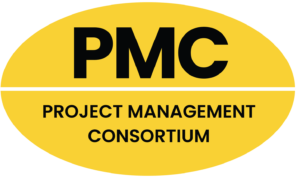
Is the U.S. economy still on the rise, slowing or heading toward recession? Take your pick, because no one seems to know for sure. With predictions varying with each new report, uncertainty appears to be the only true constant.
For instance, the Federal Open Market Committee projects a slowdown in 2019 even though the GDP is still expected to increase by 2.3 percent. The Dodge Data & Analytics’ 2019 Construction Outlook predicts about $800 billion in new construction starts this year, staying essentially even with 2018 spending. For those who prefer facts over projections, we suggest a look at the current market. Here in New Jersey, commercial real estate industry leaders continue to report unprecedented industrial sector dynamics and improving office fundamentals.
Yet regardless of industry performance, challenges – and opportunities – will always exist for property developers, owners and operators. Even in the best of times they must stay ahead of the game to secure and retain tenants, while creating operationally efficient properties. The ability to transition and upgrade processes are the keys to not only survive, but thrive in any market cycle.
Consider technology, which is playing a more pivotal role today than ever before in the quest to gain efficiencies and bolster the bottom line. And there is no better time than when profits and fundamentals are strong to capitalize on the latest innovations.
Within this context, many commercial real estate firms are recognizing the advantages of today’s digital world, and the evolution of fully integrated enterprise resource planning (ERP) solutions.
This trend was recently highlighted by Deloitte in a report stating “new business models and competition, extensive use of technology, and changing tenant and investor expectations are redefining the commercial real estate industry. As investors increasingly favor newer business models and the tech-enabled ecosystem, companies in the commercial real estate industry will have to realign business priorities and adapt to new demands. The most agile will win away customers and top talent – along with investment dollars.”
This burgeoning marketplace has prompted solutions providers to evolve with a distinct understanding of commercial real estate needs. This includes taking full advantage of an increasingly mobile and interconnected world to provide a comprehensive suite of features that address virtually all property management and construction management tasks. These can range from stand-alone property management/accounting and construction management/accounting platforms to customer resource management, tenant services, project tracking and reporting, vacancy management, budgeting, valuation, and contract management applications, among many other real estate services categories.
At its core, an ERP solution designed with open APIs (application program interfaces) serves as a “single point of truth” for today’s increasingly collaborative and mobile business world, capturing and processing real estate enterprise data while providing a wide range of financial management and reporting applications. It can easily integrate with the requirements of other API applications, enabling them to seamlessly share data in a multi-cloud environment. But before committing to integrating any application with your ERP, make sure to check the different portal developers of each API you’re revieweving. Developments usually take longer than expected, so this is something you need to sit and think about carefully.
Customizable Pricing and Features
Further advantages of today’s ERP systems built specifically for the commercial real estate marketplace include creativity in both pricing and design. While some solutions are provided by vendors on a per-seating basis, others offer SaaS pricing structures, which means subscriptions without seat-based limitations. And these systems can be customized according to company specifications. This includes real-time access to meaningful data organized in dashboards created per customer wants and needs.
Cloud computing also means no longer having to worry about the purchase, storage and maintenance of in-house servers. And, if disaster should strike, cloud backup provides easy restoration and retrieval of key corporate data. Everything from historical client information to financial and project records is available 24/7 with just a few simple mouse clicks.
While the economy seems reasonably stable today, questions continue to hover about the near future. Still, among the few absolutes in business is the need to prepare with the best possible resources. The commercial real estate industry is no different. Fortunately, technologies exist right now that not only provide immediate operational efficiencies and cost benefits, but an ongoing foundation for growth and an enhanced ability to navigate successfully in an unpredictable world.
About Integrated Business Systems (IBS)
999 Riverview Drive, Totowa, N.J. 07512










 The 2024 virtual Men’s Round Table will be held Q4, 2024, date TBD.
The 2024 virtual Men’s Round Table will be held Q4, 2024, date TBD.













